If Putin is the new Hitler, then who are the Russians?
article by VITALII OGIIENKO, Chief Specialist of the Department for the Study of Totalitarian Regimes of the Ukrainian Institute of National Remembrance
The war between Russia and Ukraine has an interesting feature that should be noted: both opponents use the same derogatory name for each other—Russians and Ukrainians both call each other Nazis. Ukrainians are defending themselves against the Russian Nazis, but the Russians themselves believe they are liberating Ukraine from imaginary Nazis, under whose influence, according to the Kremlin, have fallen not only the political and military leadership of the country but also the majority of the population. It is unlikely that there are many such examples like this in world history.
It is not difficult to explain this paradox to anyone who is even slightly familiar with Ukrainian and Russian history. For both peoples, Nazism is an absolute evil that has inflicted terrible human losses on them and, as a result, a deep collective trauma that has been passed down through the generations. Appealing to this trauma evokes different but strong emotions of hatred and contempt for the enemy, strong and insidious, that can only be defeated by an incredible concentration of will and resources. Hatred and contempt, like no other emotion, mobilize supporters. In the history of both nations, Nazism is an evil that cannot be negotiated with, only defeated. From a practical point of view, for both peoples, claiming the other side as Nazis is a win-win situation that diminishes the possibility of compromise. Both Ukrainians and Russians will fight against Nazism until the very end of this war, no matter how it ends.
However, it seems that this is where the similarity ends. What is the difference between the Ukrainian and Russian versions of Nazism? Which is closer to true Nazism? Can this unusual perspective tell us more about this war? Can we draw certain conclusions and predictions?
The Ukrainian narrative of Russian Nazism
The Ukrainian narrative of Russian Nazism is the result of the Russian invasion and has emerged only recently. A month ago, very few people in Ukraine associated Russians with Nazis. While certain elements, such as comparisons between Hitler and Putin, were used before the current war, the narrative became widespread only as a result of the new military reality, the destruction and the death, that have now become commonplace in Ukraine. Now, in the eighth week of Russia's unprovoked military aggression against Ukrainians, the comparison of Putin with Hitler and the Russian army with the Nazi army in Ukraine can be heard everywhere. The president, politicians, military and ordinary citizens all call Russians Ruscists, Fascists and Nazis on television, in official messages, on social networks and in conversations. These associations have become so widespread that they are almost universal among Ukrainians, and follow from both the nature of this war and from the traumatic history of Ukraine. The destruction of towns and villages, the artillery shelling, and especially the deliberate killing of civilians, such as the war crimes committed by the Russians in Bucha and other towns and villages around Kyiv, are horrifying in themselves. But these horrors involuntarily force people to look for, if not explanations (because not enough time has elapsed for this) then at least for certain historical analogies. Constructing such analogies is commonplace and happens automatically.
The only such analogy that truly works in these first emotional (rather than rational) attempts to make sense of what is happening is German Nazism. Ukrainians have not experienced this amount of destruction, loss and suffering since the Second World War. In scale and depth of grief, these two wars are completely comparable. During the Second World War, approximately eight million Ukrainians died at the hands of the Nazis, and the memories of that war are deeply engraved, not only in cultural memory, but also in living family history. This current pain of Russian aggression is reminiscent of this distant but not forgotten past. From this point of view, comparing Russian and German Nazis seems natural to Ukrainians.
Putin reminds Ukrainians of Hitler (another parallel can be drawn with Stalin). Both began their military aggression at four in the morning. A video comparing the speeches of Hitler and Putin has been circulating in Ukrainian social media. Both declared that they wanted peace and promised not to start a war. Both then justified their war by claiming they only wanted to protect civilians, who were allegedly being persecuted. Both promised not to use military force against civilians. Of course, they both lied and started a full-scale war.
Ukrainian scientific journals emphasize that the public discourse of Hitler and Putin are both colonial. Both created a kind of imaginary world in which their peoples / races had to take the position of dominance; both wanted to revive a past greatness and used the grossest and most dishonest of propaganda to promote this. The rhetoric is similar: if Hitler was solving the Jewish question, then Putin is solving the Ukrainian one. At least, this is how Putin explained it in his speeches justifying the need for military aggression against a neighboring country. For Hitler the Jews were inferior and flawed from birth. For Putin the Ukrainians, at least until a few months ago (I will discuss this time aspect more below), were a fraternal people who had actually always been a part of Russia and whose accidental independence occurred owing to the egregious mistakes of the late Soviet elite. But, Putin always adds immediately, Ukrainians failed to build a real state; another way in which they are inferior. Ukrainians, therefore, must return to Russia and become part of the so-called “Russian world”. And "Ukrainian nationalists" or "Ukrainian Nazis" must be exterminated, just like the Jews during World War II.
Putin considers any democratic institutions and values inherent in Ukraine to be untrue and imposed from the outside; he believes Ukrainians would easily abandon them at the slightest pressure. Putin's beliefs are consistent with existing ideology and found ready support in the Russian population. The vast majority of Russians, not just Putin, do not recognize Ukraine's right to an independent existence. For them, Ukraine is Russian land, inhabited by Russians, whose slight differences should not be taken into account. For Putin and the Russians, the very existence of an independent Ukraine is historically unjust and an insult to their national sentiment because, in their opinion, the Ukrainian state includes lands that are originally Russian, such as Crimea and Donbas.
The word "chauvinism" best describes the attitude of most Russians toward Ukraine and Ukrainians. Ukrainians are convinced that the Russian Nazis came to Ukraine to conquer it, to kill those who would fight, and subjugate the rest. Ukraine would be reduced to the status of Belarus at best, or suffer an even worse fate. All of Ukraine is fighting now, as Ukrainians fear for what may happen—that the Russians may organize a new genocide, as they did during the Holodomor of 1932-1933, when Stalin starved millions of peasants. Therefore, Ukraine must persist to a victorious end or disappear. The Bucha massacre finally convinced them of this.
The Russian narrative of Ukrainian Nazism
Unlike the Ukrainian narrative of Russian Nazism, the Russian narrative of Ukrainian Nazism has a long history. It dates back to the Second World War. According to Russians, Ukrainian Nazism stems from the ideology of the Banderas, named after the Ukrainian nationalist leader Stepan Bandera. Bandera led the insurgent movement against the Soviet regime during and after World War II. The Banderas were among the fiercest opponents of the Communists and waged guerrilla warfare against them in western Ukraine until the early 1950s.
After the collapse of the Soviet Union and Ukraine's independence in 1991, according to the Russian narrative, Ukrainian nationalists revived their influence. This influence was significantly expanded after the overthrow of the Yanukovych regime in 2014 and now includes state institutions. Russians attribute to Ukrainian nationalists an innate Russophobia and hatred of everything Russian. Kremlin propaganda emphasizes that ideologically, this so-called Ukrainian nationalism closely resemble National Socialist ideology. To the Russians, the Banderas are Nazi henchmen, participants in Nazi crimes.
The modern version of the Russian narrative about Ukrainian Nazis is essentially the old Soviet myth, supplemented with new material aimed at manipulating the current fears of Russians. A classic example of this is the plot concerning the development of biological weapons in Ukraine, particularly in connection with COVID-19. This story has been covered by all the major Kremlin media outlets and, despite its proven ridiculousness, has been used as one of the "arguments" to justify aggression against the Ukrainian Nazis, who allegedly developed these weapons.
It is these Ukrainian nationalists or radicals who, in Kremlin terminology, have become Moscow's main enemy in Ukraine. The Russian army came to denazify them and put them in concentration camps. The FSB compiled lists of these people, targeting them for annihilation. The most hated personification of the Ukrainian Nazis are the volunteer battalions within the Armed Forces and the National Guard, like the “Azov” or “Donbas” regiments. Russian propaganda portrays soldiers from these volunteer battalions as supporters of Nazi ideology and has accused them of war crimes against Russian soldiers during this war.
The image of Nazis, including the so-called Ukrainian Nazis, is one of the strongest motifs in Russian propaganda. This image has been actively used for decades to mobilize its population and demonize imaginary enemies. When necessary, the Kremlin always uses this proven tactic to mobilize Russians inside and around the regime.
The Western narrative
If, even a month ago, someone in the West had called Putin the new Hitler in conversation, such a comparison would most likely have been be misunderstood. If this had happened in a Western university setting, the speaker would likely have stopped talking and would have avoided saying it again in the future. Just as in Ukraine, before the war the narrative of Russian Nazism was almost non-existent in the West.
Until recently, the Russian narrative of Ukrainian Nazism has been much more widespread in the West. This way of thinking is characteristic of a large number of Western academic establishments, which traditionally consider any nationalist movement of the Second World War within the paradigm of Nazi collaboration and seek evidence of any involvement by such groups in the Holocaust. The obsessive attention of many Western media outlets to the Azov Regiment shows that, in the West, many are still inclined to see the connection between the modern Ukrainian nationalist movement and German Nazism.
Now, more than eight weeks after the start of Russia's aggression against Ukraine, it is unlikely that everything is so clear. The picture of Ukrainian and Russian Nazism perceptions has fragmented. The question is what new picture these fragments will form.
So far, the Western world has acknowledged that the aggression against Ukraine was an unprovoked attack and that the Russians are committing war crimes against Ukrainians, killing civilians and deliberately shelling peaceful neighborhoods. Unlike Ukraine, Western news agencies, even in stories about Russian atrocities, do not call Russian troops and their state Nazis. There are more parallels in social media. The hashtag: #PutinHitler has appeared. Some publications are beginning to raise the question, "Is Putin the new Hitler?" The answer is increasingly, yes.
In Western public consciousness, Putin is slowly becoming Hitler's counterpart. The general Western public increasingly agrees with Ukrainians that Putin, like Hitler in his day, practices disinformation, demonizes opponents, and uses hate speech. There are too many historical parallels to ignore. The symbol of the Latin letter z resembles a swastika, Putin’s “special military operation” - the Nazi Blitzkrieg. His proclaimed "denazification" of Ukrainians is the same type of perverted rhetoric used by Hitler to justify and implement the Holocaust against the Jews.
Putin, his inner circle, and the Russian military are to blame for the war and the war crimes. In a tweet, German Chancellor Olaf Scholz wrote that this is Putin's war and that ordinary Russians are not responsible for it, and urged people not to be offensive to Russians in Europe. It seems natural to follow this logic: if the regime is authoritarian, then the government and the elites are to blame, and the people are the victims rather than the accomplices of criminal acts.
Is it only Putin's fault?
Even if one recognizes that Putin is following in Hitler’s footsteps, it can be difficult to correlate this with the idea that Russia is being driven by something as sinister, gigantic, and potentially destructive to the world as German Nazism. It seems absolutely impossible that in Europe in the 21st century, 70 years after the end of the Second World War, a new absolute evil has appeared, fanatically convinced of its rightness, fixated on its historical mission, and prepared to perpetrate the genocide of other groups and peoples. Moreover, the bearer of this evil, a nation of 140 million people, is one that was victorious over Hitler and Nazism.
Such an opinion is also difficult to accept because, until recently, there were few reasons for its emergence. If Russian Nazism really exists, we must admit that almost no one had yet paid attention to this evil, spoken about it, or studied how it originated, grew, and gained strength. It manifested itself only when it launched an outright aggression with hundreds of planes and thousands of tanks against another people, its neighbor. But let’s imagine for a moment that this view is fair and that the similarities between the Nazi and Putin regimes are apparent, equally dangerous, and hateful.
For the vast majority of Westerners, this view is radical. Because if this is true, the consequences for the world will be dramatic and severe. It is one thing to deal with an authoritarian regime that suppresses freedom of speech and persecutes the opposition—even imprisoning its opponents. It is another thing to deal with a society whose genocidal proclivities are in full swing, where a xenophobic agenda has become a state ideology.
How to deal with such a society? I will not say that it is impossible to reconcile and find a common language with such a society; even if our ancestors from Ukraine, the United States, Europe, and other countries, including Russia, did everything in their power to eradicate this evil from its roots. Let’s assume that under new conditions some compromise could be reached. However, if the Russian regime and society are "Nazi", one thing is very clear. You must do everything in your power, and then some, to oppose such a regime and such a society, here and now, and help those who are fighting on the battlefield for their right to exist against this new Nazism. This is how governments, politicians, opinion leaders and citizens of all countries should act. There is no other choice, at least until the regime and society weakens to the point that they are ready for internal rebirth, whatever that means.
The answer must come from the Russian people
Who can answer the question about the Nazi essence within Russian society? Neither Western politicians, nor the Russian political elite led by Putin, nor scientists, nor even the Ukrainian military can give such an answer. The truth is that the Russian people must answer this question, and they must answer it very soon.
According to a recent poll by independent Russian sociologists, 71% of Russians now support the war with Ukraine and are proud of it. This is sad, but it is hardly enough reason to call all Russians modern Nazis. Perhaps they are only supporting their government during the war, organizing races with Z-symbols and sharing messages on social networks about how they hate the Ukrainian Nazis.
But what will happen when the Russians tacitly accept the destruction of freedom of speech (already a fait accompli after they passed the so-called law concerning "fake news” and the special military operation, according to which even calling the Russian aggression a war can entail up to 15 years of imprisonment) and any manifestations of dissent; when Russian families tighten their belts some more; when hundreds of thousands of Russian men put on military uniforms, sit on tanks—of which there are still plenty in Russia—and continue to "liberate Ukraine from the Nazis"? If they continue to kill Ukrainians with more and more brutality, burn villages and kidnap activists, shoot dissidents? What will happen when their wives go to factories to make cruise missiles, and children in every school across Russia arrange performances during their breaks where they line up in the shape of the letter Z and send pictures to their parents at the front calling for the killing of Nazis? To a certain extent, all this is happening now. The only question is how the critical mass of Russians will continue to behave.
Yes, ordinary Russians are victims of propaganda, but ordinary Germans under Hitler were also victims of propaganda. However, today’s Western society is dominated by the viewpoint that these Germans were not only victims, but also the accomplices of the Nazi regime, and therefore should bear a part of responsibility for all of its crimes.
Ukrainians are the last people in the world who want to see this prospect become a reality. Because it is our women and children who are hiding in bomb shelters from Russian cruise missiles and bombs, and our men who are confronting hundreds of thousands of Russians on the battlefield.
What to look for?
It cannot be said that the Russian regime and society are by definition Nazi. But if such parallels are to be drawn, it must be acknowledged that this transformation to Nazism is taking place right now. In the words of the German pastor Martin Niemoller "When they came…" - perhaps one of the most famous statement about Nazism. They are usually used to describe the passivity of some social groups in the face of the destruction of others. First they came for the Jews, then for the Communists, then for the members of the trade union, and so on. These words motivate us to resist evil and violence as they begin, because otherwise they will only become stronger and more harmful and painful. But this statement also reflects the nature of regimes such as Nazism. The Nazis' appetite for violence grew gradually. Each time it grew they declared more and more people to be their enemies, claimed that more and more other groups of people needed to be destroyed. This expansion of the circle of enemies is an important sign of the formation of the Nazi regime.
This is exactly what is happening in Russia right now with regard to Ukrainians. Totalitarianism, deeply ingrained in the traumatized national soul of Russia, and the chauvinism inherent in Russians, are sprouting into true Nazism.
As I wrote above, at the beginning of the aggression, when Putin was convinced that the campaign would last only a few days, only individual Ukrainians—the so-called Ukrainian Nazis—including those in the military, public activists, and statesmen, were to be subject to kill orders or confinement in concentration camps. The US intelligence services reported that before the war, the Russians bought 40,000 plastic bags for corpses. It is now clear that these were intended for the Ukrainian "Nazis". As horrible as it may sound, such actions fit perfectly into the standard Russian pre-war narrative of Ukrainian Nazism.
According to this theory, Russians, Ukrainians and Belarusians are the so-called “fraternal peoples”, originating from Kievan Rus—an ancient proto-Ukrainian state founded in the late ninth century: it is called the "common cradle of fraternal peoples." The majority of Russians are convinced that all these different groups are essentially one people and should be in one cultural space—the "Russian world". Of course, it would be better for them if they all co-existed within one state entity, Russia proper, but the option of subordination, like in the case of Belarus, is also acceptable. The current Russian aggression is supported by the Russians, because they are convinced that if they win, the Ukrainians will reunite with the Russians and live together with them, as was the case under the Soviet Union. Of course, the Russians are the older brother to the Ukrainians younger, putting Ukrainians in a subordinate position. Russians believe that "reunification" will return Russia to the status of a great country, forcing other countries to reckon with it, and become a source of national pride. To do this, they need only to liberate the Ukrainians—a fraternal people, close to them in culture—from the Ukrainian Nazis: a completely foreign body to the "Russian world". Expectations of a speedy campaign were based on the premise that the vast majority of the Ukrainian population would welcome their "brothers" after liberation from the "Nazi yoke."
An absolutely erroneous theory cannot work. The Ukrainian resistance shocked not only the Russian army, but also the Russian leadership and ordinary Russians. How to explain why Ukrainians stopped tanks with their bare hands, and in Russian-speaking occupied cities went on mass protests under the "Bandera" slogan of "Glory to Ukraine! Glory to Ukraine!" - Death to enemies!"?
Херсон це Україна! Навіть в окупаціі, та з продуктами с рашкі, ми не раби!#Kherson #UkraineRussiaWar #Ukraine pic.twitter.com/z3LEMHilHc
— vale4chka (@vale4chka) April 10, 2022
Do Russians Really Choose Genocide?
There are only two ways to explain this reality. Either you must recognize the foundation as wrong, that there are no fraternal peoples and no "Nazis" in Ukraine: this is impossible for Russians right now, for a number of reasons. Or, you can extend the notion of what makes a Nazi to include all those who fight against the Russians. The Russians chose the latter option, declaring "Nazis" to be not only members of volunteer battalions, Zelensky, and public activists, but all Ukrainians, regardless of what they speak, Ukrainian or Russian, or whether they be ethnic Ukrainians, Russians, Jews or Tatars, and so on.
In fact, this expansion of who is “Nazi", and must therefore be annihilated, is now being actively pursued by the Russian propaganda machine. All those who identify with Ukrainians are Nazis to the Russian government. Take, for example, this openly genocidal ideology as formulated in the article "What Russia Should Do with Ukraine", which was published on the central Russian state resource "RIA Novosti". The author of this genocidal manifest urges it to be used against all Ukrainians who survive after the Russian victory, and states that re-education through ideological repression must occur in Ukrainian political and cultural spheres. The author of the article openly says that “Debanderization” is not enough now. Denazification should include, according to new Kremlin narrative, “Deukrainization” and “Deeuropeization”.
Former Russian President and now Deputy Chairman of the Russian Security Council Medvedev has directly stated that “Ukrainianness” is fake, and promised to "change the minds of some current Ukrainians." In other words, Russia's official position now is simply to destroy Ukraine, Ukrainians, Ukrainian culture, and Ukrainian identity with the Russian army. Their masks removed, the Russian authorities have stopped hiding their intentions, openly declaring that their goal is the genocide of all Ukrainians. According to Timothy Snyder, a historian and an expert on genocide, States that organize genocide rarely declare their intentions publicly, but not so in this case. In their nationalistic zeal, the Russians seem to have stopped publicly hiding their true intentions.
How will the Russian people react? This will soon become clear. If you meet a Russian or correspond with them on social media, ask them two questions: are the whole of the Ukrainian people "Nazis"? And second, how should Nazis be treated? But be sure to pause between the two questions.
Personally, I do not really believe that the Russian people will react differently than the Russian army—flesh of the Russian people. The army, which deliberately drops bombs on maternity hospitals, shoots civilian men, rapes women and children. When these criminals are on trial—and such a day will surely come—the first thing the prosecutors should do is ask them these two questions.
Read this article by Vitalii Ogiienko at in russian and Ukrainian at the links.
Please select it with the mouse and press Ctrl+Enter or Submit a bug










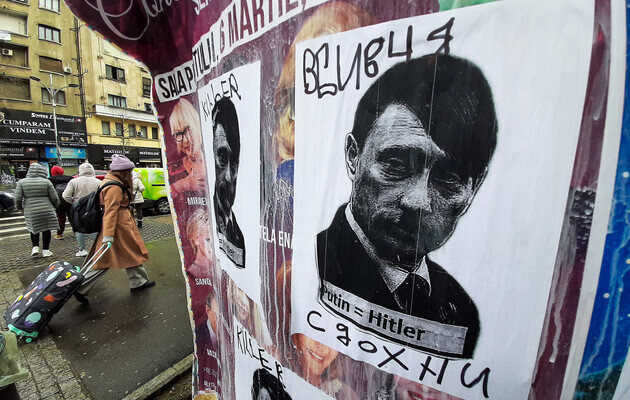
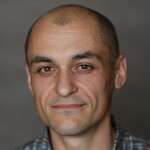
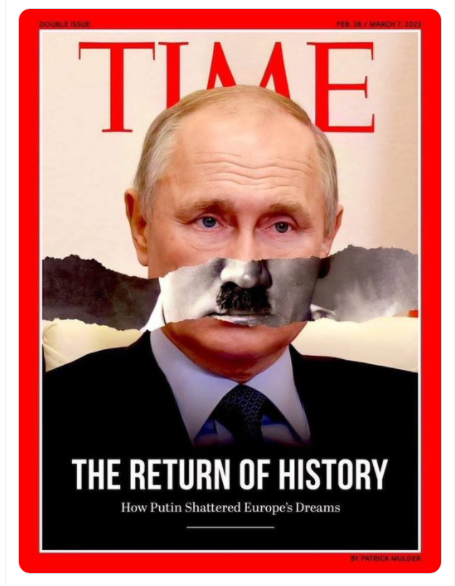
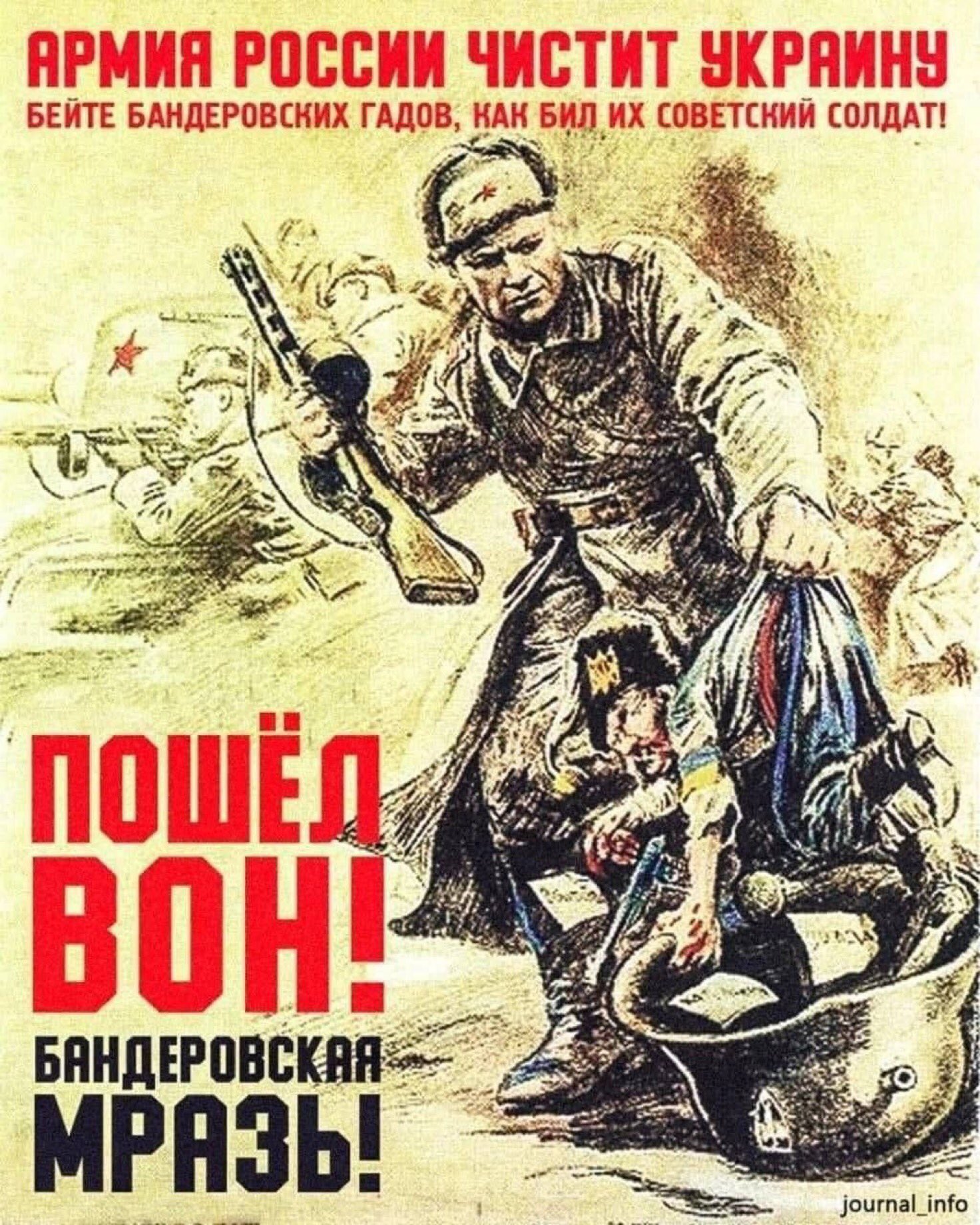
.png)
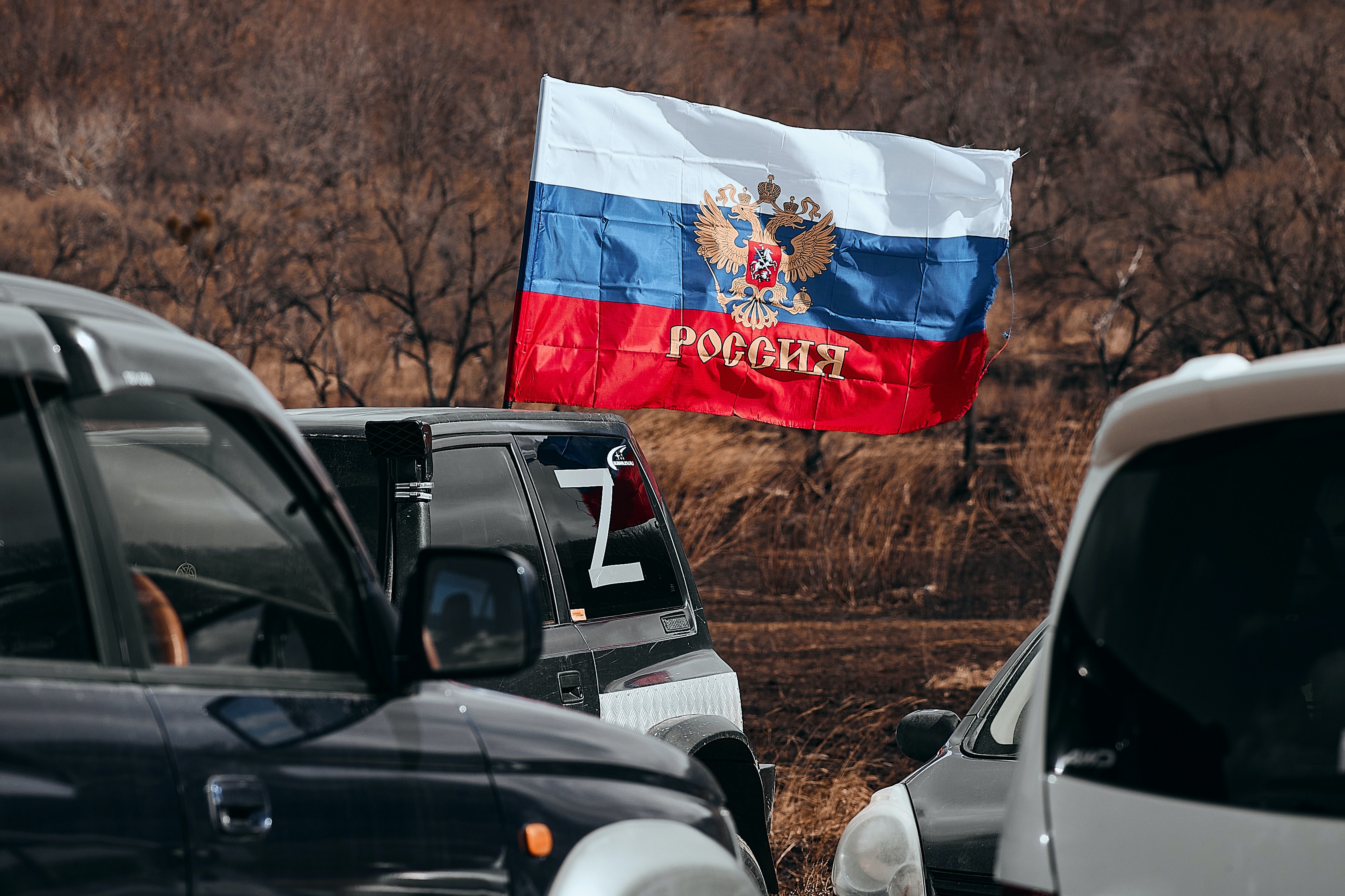
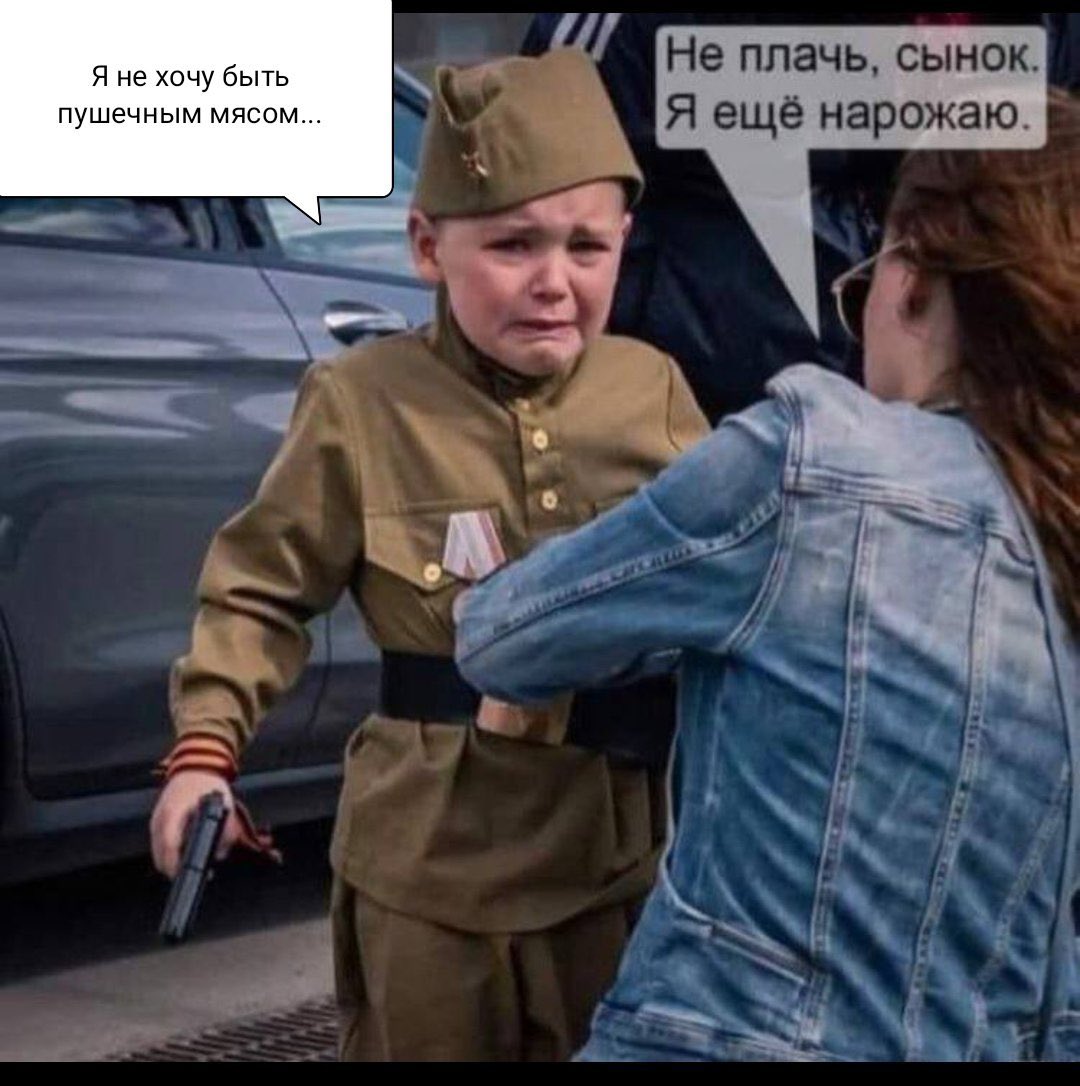
 Login with Google
Login with Google